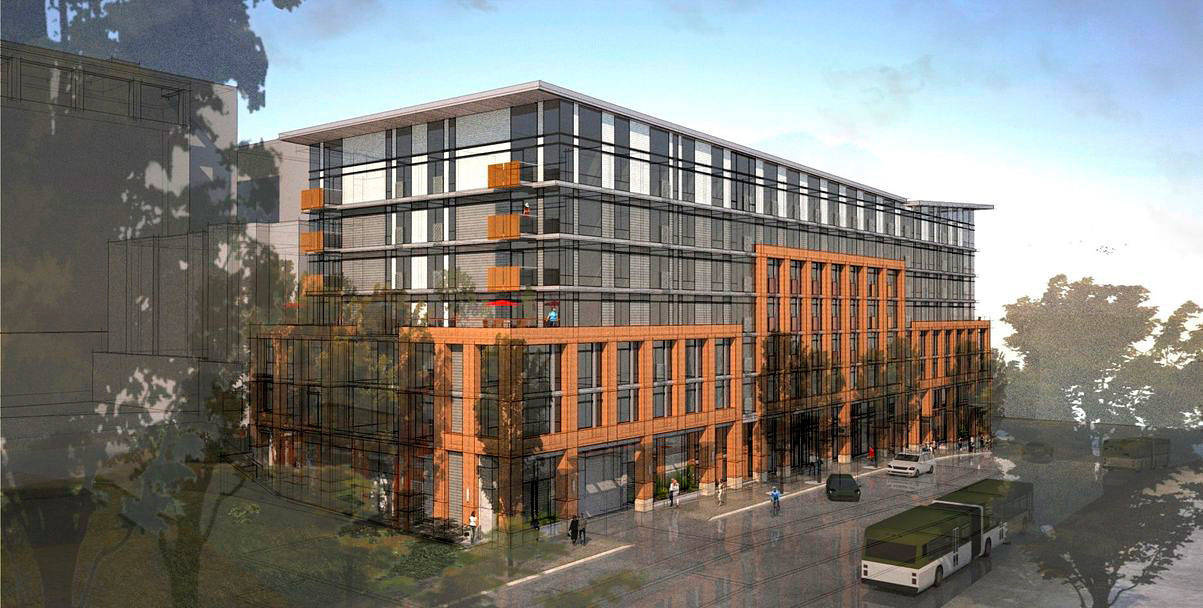Offering developers a tax break in exchange for including affordable units in their housing projects has been a staple of Seattle’s housing strategy, and cities across King County have started to follow suit in recent years. Housing organizations and city staff often tout the tax break, known as the multifamily tax exemption, as a powerful tool to encourage the creation and preservation of affordable housing when used in conjunction with other strategies. But how effective is it?
Seattle has had a version of the tax exemption since 1998. Since then, it has netted a total of 32,170 affordable units, according to its 2017 annual report — and city staff say around 1,000 units were added during 2018. Almost all the units created since then have been rentals, with South Lake Union, the West Seattle Junction, and Capitol Hill seeing the most tax-exempt developments.
Developers and landowners receive a 12-year tax break in exchange for restricting rents on a portion of their units for its duration. Property owners are free to pull out of the program at any time and must verify they’re still in compliance and offering affordable units, but Emily Alvarado, Seattle’s manager of policy and equitable development, said they haven’t seen developers pull out. “It has been one of our chief tools to produce affordable housing in new developments,” Alvarado said.
Seattle revisits its plan every few years to adjust the affordability levels that developers must meet to receive the credit. In exchange for setting aside 20 to 25 percent of units as affordable housing, the developers receive local tax breaks and are audited at least once every three years for compliance. Alvarado said it is one of the city’s key incentive tools for creating affordable housing for modest and moderate wage workers, specifically those making between 65 percent to 85 percent of the area median income. Smaller units must be marketed to those making even lower incomes, and the rents they are allowed to charge increase with the size of the units.
The Seattle City Council will adjust the tax exemption again this year to ensure the city is making the most of the exemption, Alvarado said. The city calculates how much tax revenue it is missing out on and compares it to the total savings renters are keeping from the exemptions. Coupled with this is a strategy of affirmative marketing: Before the units are marketed to the general public, property owners inform the Seattle Housing Authority and three community-based organizations that the units will be available. This allows people with federal housing vouchers and others most in need a chance to rent them.
While the program has provided clear benefits to Seattle, it is somewhat less clear how it will affect affordable housing developments elsewhere. Bellevue passed a similar ordinance in 2015, which until recently had failed to attract attention from developers. As of now, two projects will be using the tax credit: the 888 Bellevue Tower and the Cerasa, for a total of 63 affordable units. Bellevue planner Janet Lewine said the city set a goal of creating 65 affordable units a year, and another developer is talking with the city about using the tax exemption, which would bring another 32 affordable units when it is completed. “We feel that we’ve got the momentum going now,” Lewine said.
The 63 affordable units are part of more than 1,900 total units currently being built in Bellevue. Several developers told Bellevue they were already in the permitting process prior to the city’s adoption of the tax exemption. Other cities, including Issaquah, recently passed tax exemptions. Keith Niven, economic and development services director, said Issaquah had approved one pilot project after the city adopted the tax exemption in 2017.
In South King County, Auburn adopted a multifamily tax exemption program in 2003, which could be used in a couple of downtown blocks near the Sounder train terminal. Since then, two projects have used it with more developers who are interested. Jeff Tate, Auburn’s director of community development services, said the city’s core (where the tax exemption is offered) was already built out into several parcels. Developers interested in building multifamily and mixed-use developments first must purchase many smaller plots before combining them to build on. The recession also slowed development in the city, and not until around 2011 did developers begin to look at building larger projects in the city. “I would say there was a pause button pushed on development,” Tate said.
Especially for smaller cities, Tate said, the tax provides an incentive to attract developers who could choose to build in any number of cities in Puget Sound, including even hotter real estate markets found on the Eastside and Seattle. “For smaller cities, we feel that we probably need to do more to draw in the development that we want,” he said.
Talk to us
Please share your story tips by emailing editor@kentreporter.com.
To share your opinion for publication, submit a letter through our website https://www.kentreporter.com/submit-letter/. Include your name, address and daytime phone number. (We’ll only publish your name and hometown.) Please keep letters to 300 words or less.

